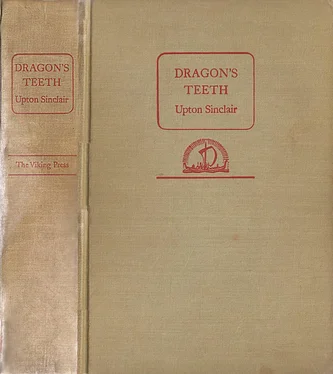Пользователь - o 3b3e7475144cf77c
Здесь есть возможность читать онлайн «Пользователь - o 3b3e7475144cf77c» весь текст электронной книги совершенно бесплатно (целиком полную версию без сокращений). В некоторых случаях можно слушать аудио, скачать через торрент в формате fb2 и присутствует краткое содержание. Жанр: Старинная литература, на русском языке. Описание произведения, (предисловие) а так же отзывы посетителей доступны на портале библиотеки ЛибКат.
- Название:o 3b3e7475144cf77c
- Автор:
- Жанр:
- Год:неизвестен
- ISBN:нет данных
- Рейтинг книги:4 / 5. Голосов: 1
-
Избранное:Добавить в избранное
- Отзывы:
-
Ваша оценка:
- 80
- 1
- 2
- 3
- 4
- 5
o 3b3e7475144cf77c: краткое содержание, описание и аннотация
Предлагаем к чтению аннотацию, описание, краткое содержание или предисловие (зависит от того, что написал сам автор книги «o 3b3e7475144cf77c»). Если вы не нашли необходимую информацию о книге — напишите в комментариях, мы постараемся отыскать её.
o 3b3e7475144cf77c — читать онлайн бесплатно полную книгу (весь текст) целиком
Ниже представлен текст книги, разбитый по страницам. Система сохранения места последней прочитанной страницы, позволяет с удобством читать онлайн бесплатно книгу «o 3b3e7475144cf77c», без необходимости каждый раз заново искать на чём Вы остановились. Поставьте закладку, и сможете в любой момент перейти на страницу, на которой закончили чтение.
Интервал:
Закладка:
Germany had got several billion dollars from America, but had to have more, and France didn't
want her to get them until she agreed to do what France demanded. The innkeeper's son was
received with cordiality; excellent dinners were prepared for him, and nobody brought up
against him his early Socialistic opinions. Robbie Budd reported that what Laval wanted was for
the President to do nothing; to which Robbie's flippant son replied: "That ought to suit
Herbert Hoover right down to the ground."
A few days later came the general elections in Britain. Ramsay MacDonald appealed to the
country for support, and with all the great newspapers assuring the voters that the nation had
barely escaped collapse, Ramsay's new National government polled slightly less than half the
vote and, under the peculiarities of the electoral system, carried slightly more than eight-
ninths of the constituencies. Rick wrote that Ramsay had set the Labor party back a matter of
twenty-one years.
Robbie Budd didn't worry about that, of course; he was certain that the rocks had been
passed and that a long stretch of clear water lay before the ship of state. Robbie's friend
Herbert had told him so, and who would know better than the Great Engineer? Surely not the
editors of Pink and Red weekly papers! But Lanny perversely went on reading these papers,
and presently was pointing out to his father that the British devaluation of the pound was
giving them a twenty per cent advantage over American manufacturers in every one of the
world's markets. Odd as it might seem, Robbie hadn't seen that; but he found it out by cable,
for the Budd plant had a big hardware contract canceled in Buenos Aires. One of Robbie's scouts
reported that the order had gone to Birmingham; and wasn't Robbie hopping!
II
Mr. and Mrs. Lanny Budd took passage on a German steamer to Marseille; a spick-and-span,
most elegant steamer, brand-new, as all German vessels had to be, since the old ones had been
confiscated under the treaty of Versailles. One of the unforeseen consequences of having
compelled the Germans to begin life all over again! Britain and France didn't like it that their
former foe and ever-present rival should have the two fanciest ocean liners, the blue-ribbon
holders of the transatlantic service; also the two most modern warships—they were called
pocket-battleships, because they weren't allowed to weigh more than ten thousand tons each,
but the Germans had shown that they could get pretty nearly everything into that limit.
This upstart nation was upstarting again, and outdistancing everybody else. The Germans
filled the air with outcries against persecutions and humiliations, but they had gone right
ahead borrowing money and putting it into new industrial plant, the most modern, most
efficient, so that they could undersell all competitors. You might not like Germans, but if you
wanted to cross the ocean, you liked a new and shiny boat with officers and stewards in new
uniforms, and the cleanest and best table-service. They were so polite, and at the same time so
determined; Lanny was interested in talking with them and speculating as to what made them
so admirable as individuals and so dangerous as a race.
Right now, of course, they were in trouble, like everybody else. They had the industrial plant,
but couldn't find customers; they had the steamships, but it was hard to get passengers! The
other peoples blamed fate or Providence, economic law, the capitalist system, the gold standard,
the war, the Reds—but Germans everywhere blamed but one thing, the Versailles Diktat and the
reparations it had imposed. Every German was firmly set in the conviction that the Allies
were deliberately keeping the Fatherland from getting on its feet again, and that all their
trouble was a direct consequence of this. Lanny would point out that now there was a
moratorium on all their debts, not only reparations but post-war borrowings, so it ought to be
possible for them to recover soon. But he never knew that argument to have the slightest effect;
there was a national persecution complex which operated subconsciously, as in an individual.
Since there were so few passengers, Lanny had a week in which to study the ship and those
who manned it. Knowing Germany so well, he had a passport to their hearts. He could tell the
officers that he had been a guest of General Graf Stubendorf; he could tell the stewards that
he had talked with Adolf Hitler; he could tell the crew that he was a brother-in-law of Hansi
Robin. The vessel was a miniature nation, with representatives of all the various groups in about
the right proportions. Some of the officers had formerly served in the German navy, and some
of those who tended the engines had rebelled against them and made the Socialist revolution.
In between were the middle classes—stewards, barbers, clerks, radio men, petty officers—all of
whom worked obsequiously for tips but would work harder for love if you whispered: "Heil
Hitler!"—even though you said it in jest.
Irma couldn't understand Lanny's being interested to talk to such people, and for so long a
time. He explained that it was a sociological inquiry; if Rick had been along he would have
written an article: "The Floating Fatherland." It was a question of the whole future of
Germany. How deeply was the propaganda of Dr. Joseph Goebbels taking effect? What were
the oilers thinking? What did the scullery men talk about before they dropped into their
bunks? There were dyed-in-the-wool Reds, of course, who followed the Moscow line and were
not to be swerved; but others had become convinced that Hitler was a genuine friend of the people
and would help them to get shorter hours and a living wage. Arguments were going on day and
night, an unceasing war of words all over the ship. Which way was the balance swinging?
Important also was what Capain Rundgasse said. As the physician has a bedside manner, so the
captain of a passenger liner has what might be called a steamer-chairside manner. He talked
with two wealthy and fashionable young Americans, saying that he could understand why they
were worried by the political aspect of his country; but really there was no need for concern.
Fundamentally all Germans were German, just as all Englishmen were English, and when it was a
question of the welfare and safety of the Fatherland all would become as one. That applied to the
deluded Socialists, and even to the Communists—all but a few criminal leaders. It applied to the
National Socialists especially. If Adolf Hitler were to become Chancellor tomorrow, he would
show himself a good German, just like any other, and all good Germans would support him
and obey the laws of their country.
III
Bienvenu seemed small and rather dowdy when one came to it from Shore Acres. But it was
home, and there were loving hearts here. Beauty had spent a quiet but contented summer, or
so she said. That most unlikely of marriages was turning out one of the best; she couldn't say
enough about the goodness and kindness of Parsifal Dingle—that is, not enough to satisfy
herself, although she easily satisfied her friends. She was trying her best to become spiritual-
minded, and also she had the devil of embonpoint to combat. She consoled herself with the
idea that when you were well padded, you didn't develop wrinldes. She was certainly a
blooming Beauty.
Madame Zyszynski had been two or three times to visit Zaharoff at Monte Carlo; then he had
Читать дальшеИнтервал:
Закладка:
Похожие книги на «o 3b3e7475144cf77c»
Представляем Вашему вниманию похожие книги на «o 3b3e7475144cf77c» списком для выбора. Мы отобрали схожую по названию и смыслу литературу в надежде предоставить читателям больше вариантов отыскать новые, интересные, ещё непрочитанные произведения.
Обсуждение, отзывы о книге «o 3b3e7475144cf77c» и просто собственные мнения читателей. Оставьте ваши комментарии, напишите, что Вы думаете о произведении, его смысле или главных героях. Укажите что конкретно понравилось, а что нет, и почему Вы так считаете.




